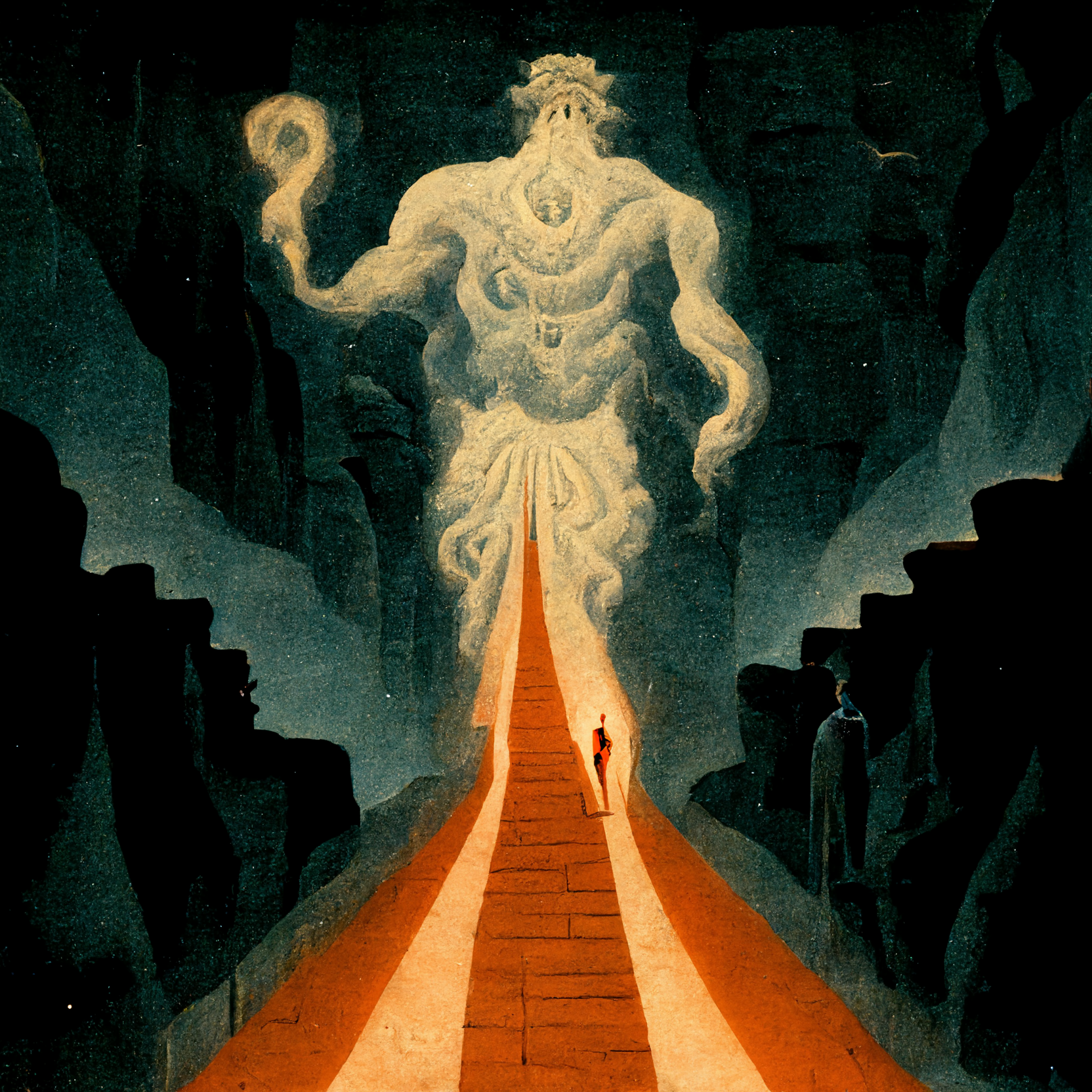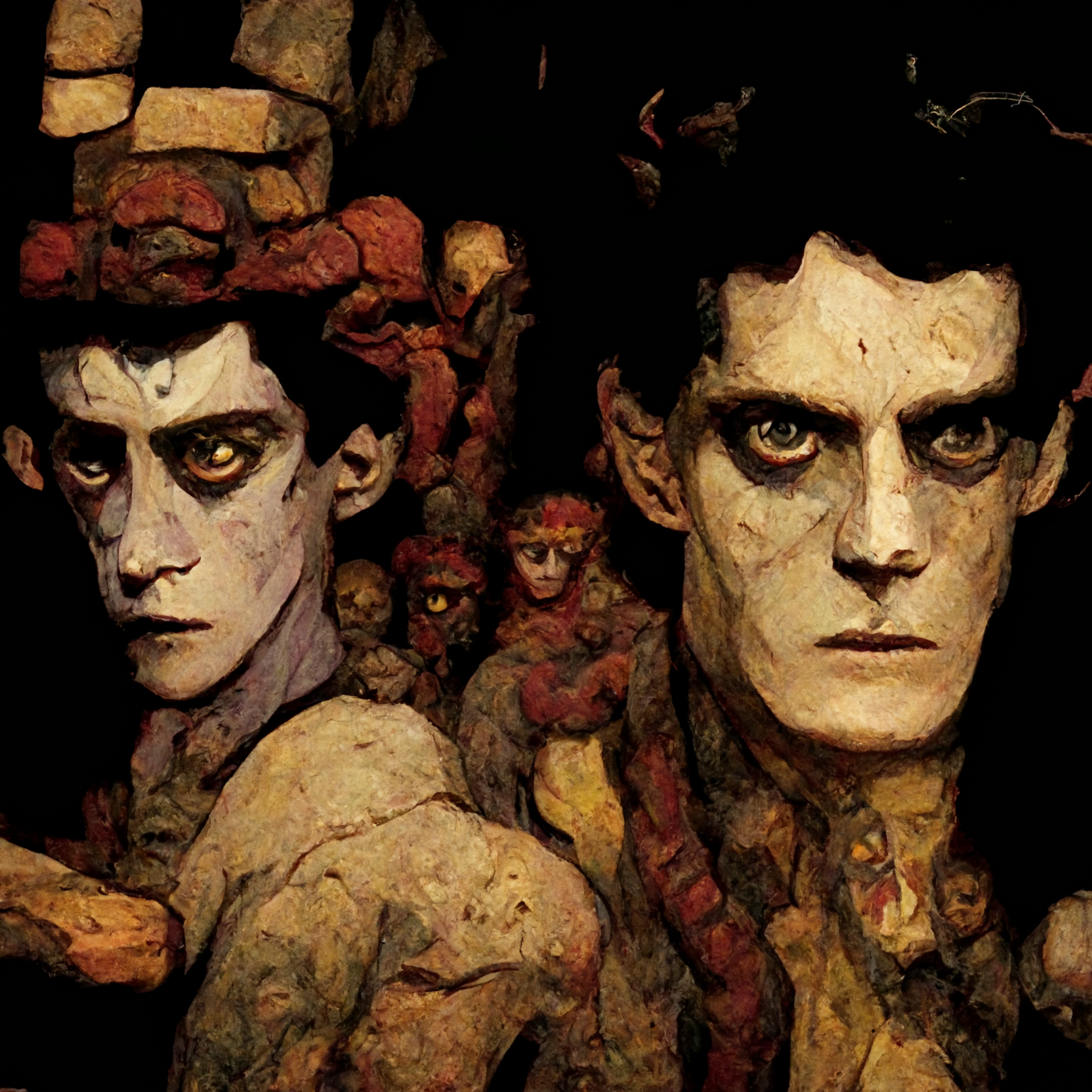Young Zeus

There was a time you let me know
What’s really going on below
But now you never show it to me, do you?
—Leonard Cohen, “Hallelujah”
When my children were little I read them a book called Young Zeus, an illustrated recapitulation of the early life of the mythical Zeus. The book follows his story until he, together with his siblings, overcome their father, the Titan Kronos, to rule on Mount Olympus.
I was struck by the role of the monsters imprisoned by Kronos and his brothers in the underworld of Tartarus. These were the Olympians’ cousins, the Cyclopes “Circle-eyes,” and Hecatoncheires, the “Hundred-Handed Ones,” guarded by the monster Kampe, “worm.” Zeus learns that the battle with the Titans can only be won with the help of these underworld creatures so he works to free them.
In the illustrated version Zeus enters Tartarus armed with a special kind of honey to relax the fabulous jailoress. Having fed her the honey, she sleeps and he frees the underworld creatures, extracting their promise that they will assist him in the battle with the Titans. The Cyclopes and Hundred Handers are amenable, as it was the Titans who had first imprisoned them.
The writer Joseph Campbell taught that ancient myths are true in their allegorical descriptions of the landscape of human inner life. He invited readers to see every aspect of the stories, not as narratives involving external events or characters, but as precise descriptions of the inner world. He focused in particular on religious texts, including myths, the oral scripture for societies of the past.
As I read about Zeus and the underworld creatures to my children, I felt the story contained a real importance. Its teachings seemed packaged to elude the analysis of the mind and speak directly to a deeper, unconscious part of our psyches. The story suggested a means of reconciling with the powerful impulses buried in the latent parts of our nature.

I intuited that the underworld creatures relate to the powerful instinctive drives for survival. These include drives for health, safety, and the accumulation of resources; the drive for social connection and maintaining reliable relationships; and the sexual drive which is not only for the physical sex but also “pushing the envelope” in myriad ways.
When these impulses are unconscious or denied, relegated to the underworld, their manifestation is furtive, compulsive, addictive, shrouded in a fog of urgency and denial. These drives make our decisions and motivate our actions.
The denial of instinctive needs may be at the root of the diseased life of human beings in the present epoch. We are driven to divers prophylactics against imagined threats. We are starved for meaningful connections and sex becomes a fetish. We grow obsessed with seeking power or identity. All of these are poor translations of the needs of the body and the satisfactions available for them.
Conscious and inhabited, the drives become the power plant of manifestation in the direction of a heart’s desire. Bringing the instinctive drives to consciousness is the liberation of the Cyclopes and Hecatoncheires from imprisonment in the underworld. Freed they may come to our aid in unseating the ego-mind from its tyrannical seat of power.
Zeus’s approach to the terrible Kampe is instructive. He feeds and satisfies her so she can relax. We are invited to approach our unconscious parts with offers of satisfaction, providing what this deep part of our nature truly needs.
Jason Stern teaches the inner work of GI Gurdjieff and the Fourth Way internationally. He has a website at www.learningtobehuman.com.